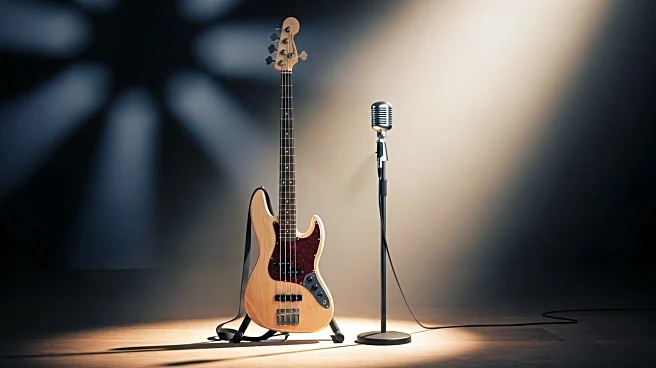What is the story about?
What's Happening?
Sting, the renowned British musician, is facing a lawsuit from his former bandmates of The Police, Andy Summers and Stewart Copeland, over missing royalties from the hit song 'Every Breath You Take.' The lawsuit, filed in the London High Court, claims that Summers and Copeland were not credited as songwriters for the 1983 track, which has generated substantial royalties for Sting, reportedly amounting to $740,000 annually. The bandmates argue they are owed millions in lost royalties due to the lack of songwriting credits. Attempts to settle the matter out of court have failed, leading to the current legal action.
Why It's Important?
The lawsuit highlights ongoing issues within the music industry regarding songwriting credits and royalty distribution. It underscores the financial implications for artists who may not receive due compensation for their contributions to successful tracks. This case could set a precedent for similar disputes, potentially affecting how royalties are allocated among band members and collaborators. The outcome may influence contractual agreements and negotiations within the industry, impacting artists' earnings and the recognition of their creative input.
What's Next?
The legal proceedings will likely involve detailed examination of the contractual agreements and the contributions of each band member to the song. If the court rules in favor of Summers and Copeland, it could lead to significant financial compensation and adjustments in royalty distribution. The case may also prompt other artists to reassess their own agreements and seek legal redress for similar grievances. Industry stakeholders, including record labels and legal experts, will be closely monitoring the case for its potential impact on future music contracts.
Beyond the Headlines
This lawsuit sheds light on the complex dynamics within bands and the challenges of maintaining equitable relationships among members. It raises questions about the balance between individual and collective contributions in creative collaborations. The case also reflects broader cultural shifts towards recognizing and compensating all contributors in artistic endeavors, potentially influencing how creative rights are perceived and valued.















